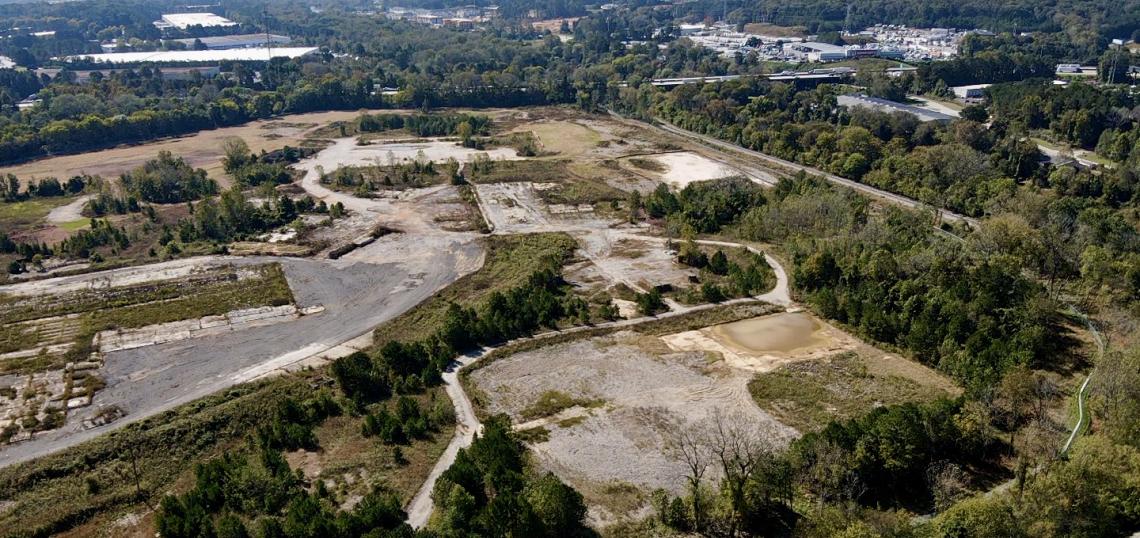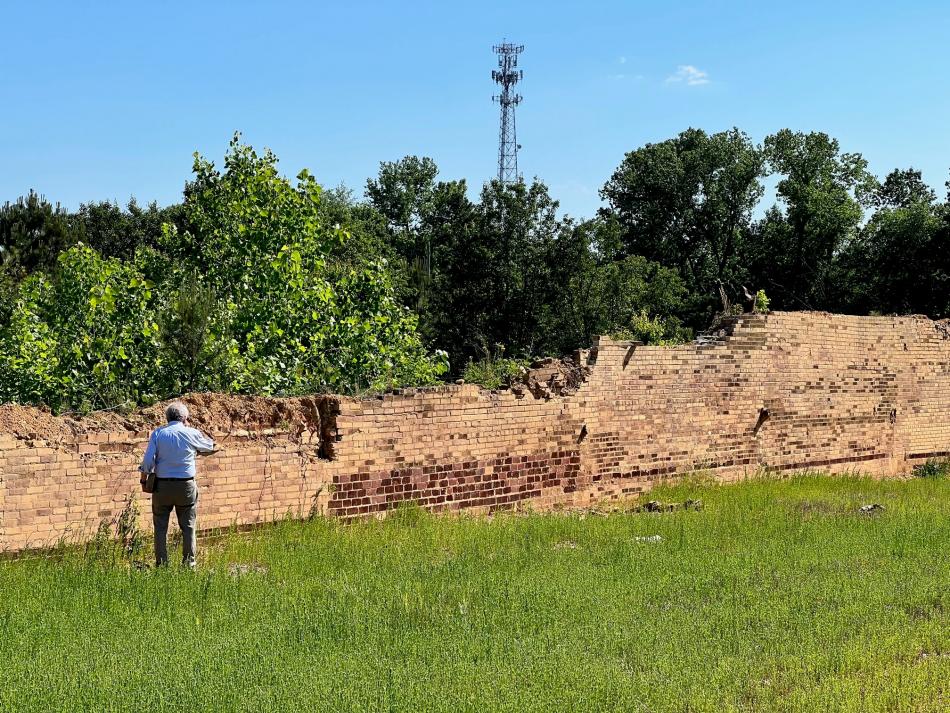A greenspace project in northwest Atlanta is moving forward that backers envision as one of the only sites in America dedicated to relaying the story of the dreadful convict leasing system that became prevalent in years following the Civil War.
A year and ½ after the former Chattahoochee Brick Company site made headlines lauded by preservationists and neighborhood groups, City of Atlanta officials have unveiled plans for gathering community input regarding the site’s future, beginning later this week.
The city is partnering with the National Center for Civil and Human Rights to host a series of discussions at The Carter Presidential Center with a goal of illuminating the property’s troubled history—and defining objectives for its redevelopment.
The acreage is more than three times the size of Centennial Olympic Park, and other attributes of the site would be unique among Atlanta greenspaces.
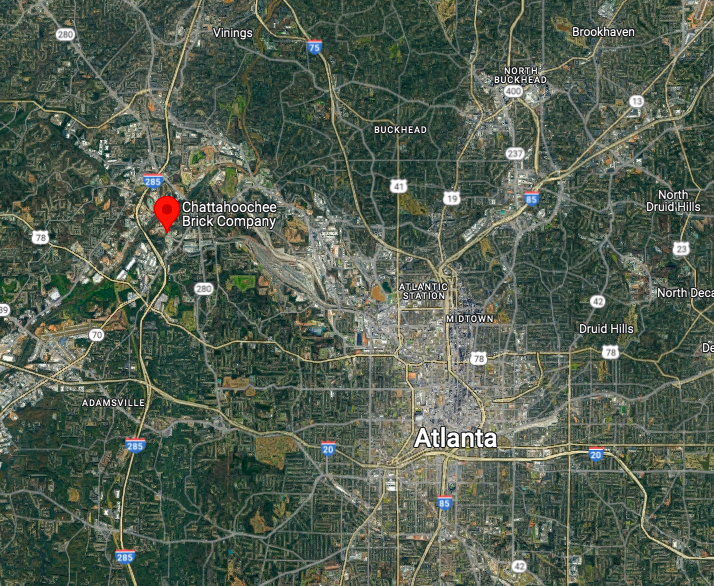 The former Chattahoochee Brick Company site near northwest Atlanta neighborhoods such as Whittier Mill Village, Scotts Crossing, and Riverside. Google Maps
The former Chattahoochee Brick Company site near northwest Atlanta neighborhoods such as Whittier Mill Village, Scotts Crossing, and Riverside. Google Maps
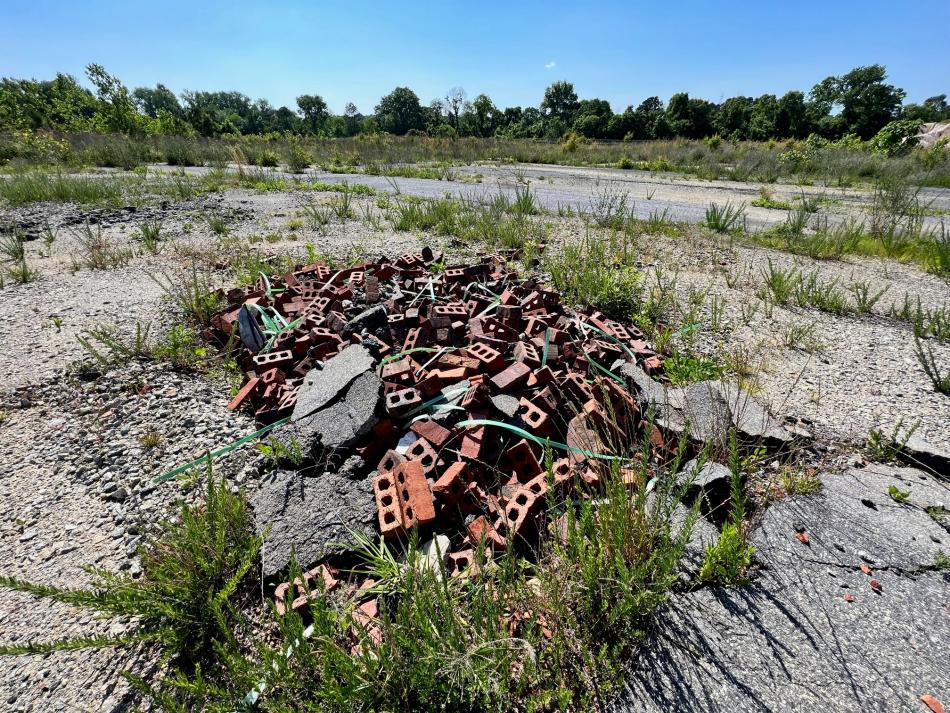 Remnants of the site's past uses still dot the property. Photo by Stacy Funderburke; courtesy of The Conservation Fund
Remnants of the site's past uses still dot the property. Photo by Stacy Funderburke; courtesy of The Conservation Fund
The free monthly seminars will be held between this Saturday, Feb. 17, and June at The Carter Presidential Center. According to city officials, the meetings are considered the first phase of community involvement in bringing the historic site into a more useful state.
Saturday’s two-hour seminar begins at 1 p.m., with Morehouse College’s Clarissa Myrick-Harris scheduled to give the keynote address. It will lend an overview of the Chattahoochee Brick project “and how to get involved in the upcoming process to transform the site from its former use to one that not only memorializes those who worked (and possibly died) there, but also one that will serve the needs of Atlanta residents today,” according to the event's registry page.
Advancing the parks project to this stage was an arduous process.
Following protracted negotiations, city officials purchased the 75-acre former Chattahoochee Brick Company site from Lincoln Terminal Company in summer 2022. That purchase—aided by a $4-million grant from Atlanta nonprofit The Kendeda Fund and national environmental nonprofit The Conservation Fund—spared the culturally significant riverside property from non-public, industrial uses, such as a train terminal or chemical depot.
Situated today on Brick Plant Road, next to the historic Whittier Mill Village neighborhood, the brickworks business owned by former Atlanta mayor James W. English relied on extensive use of convict lease labor from the late 1870s to early 1900s. Hundreds of men, most of them Black, were accused of sometimes petty crimes such as vagrancy and forced to endure working conditions and beatings so severe that many died—until convict labor was outlawed in Georgia in 1909.
Historians and others with interest in the site believe it is dotted with unmarked graves.
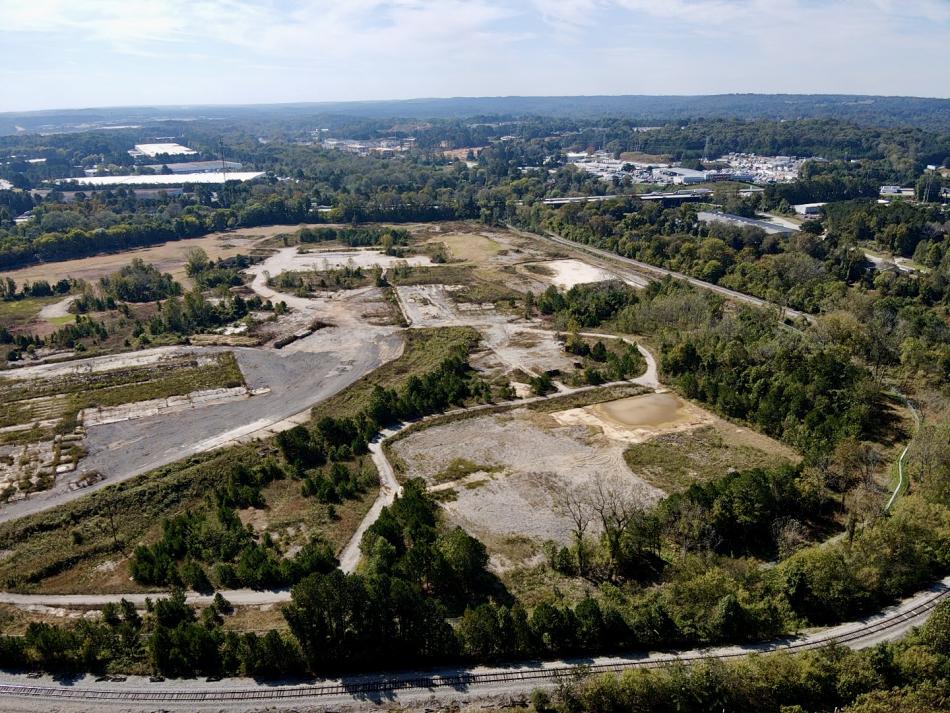 The former Chattahoochee Brick Company site, a 75-acre win for ITP greenspace preservation in 2022. Photo by Stacy Funderburke; courtesy of The Conservation Fund
The former Chattahoochee Brick Company site, a 75-acre win for ITP greenspace preservation in 2022. Photo by Stacy Funderburke; courtesy of The Conservation Fund
Industrial uses continued at the property until about two decades ago, and attempts by environmental nonprofits and the City of Atlanta to buy the site had never come to fruition. Community members and descendants of laborers subjected to atrocities fought for the site’s protection for years.
Lincoln Terminal Company eventually bought the site and planned to redevelop but was denied a permit in 2017; that company’s subsequent plans to sell to Norfolk Southern, which hoped to build a train terminal, were met with fierce pushback from activists and city leaders. Those redevelopment plans were officially scrapped in 2021.
More recently, the city has put together an 11-member group called the Chattahoochee Brick Company Memorial, Greenspace, and Park Board as a means of keeping the visioning, planning, design, and redevelopment phases more transparent and inclusive.
A city-issued announcement last week says the process of gathering public input is expected to take “several years.” A memorial honoring victims of lease labor practices will be an integral part of whatever becomes of the land, officials have said.
The site will also boost too-rare public access to the Chattahoochee River for city residents. It’s expected to eventually be linked to the Proctor Creek Greenway and the much larger, 53-mile Chattahoochee RiverLands initiative.
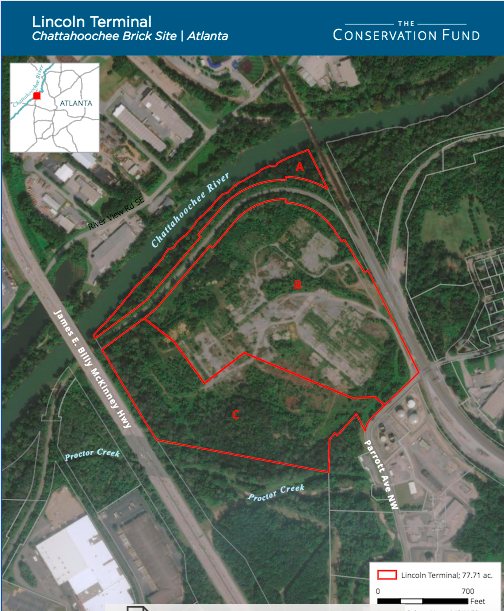 The 75-acre parcel in question, adjacent to the Chattahoochee River. Photo by Stacy Funderburke; courtesy of The Conservation Fund
The 75-acre parcel in question, adjacent to the Chattahoochee River. Photo by Stacy Funderburke; courtesy of The Conservation Fund
...
Follow us on social media:
Twitter / Facebook/and now: Instagram
• Whittier Mill Village news, discussion (Urbanize Atlanta)





